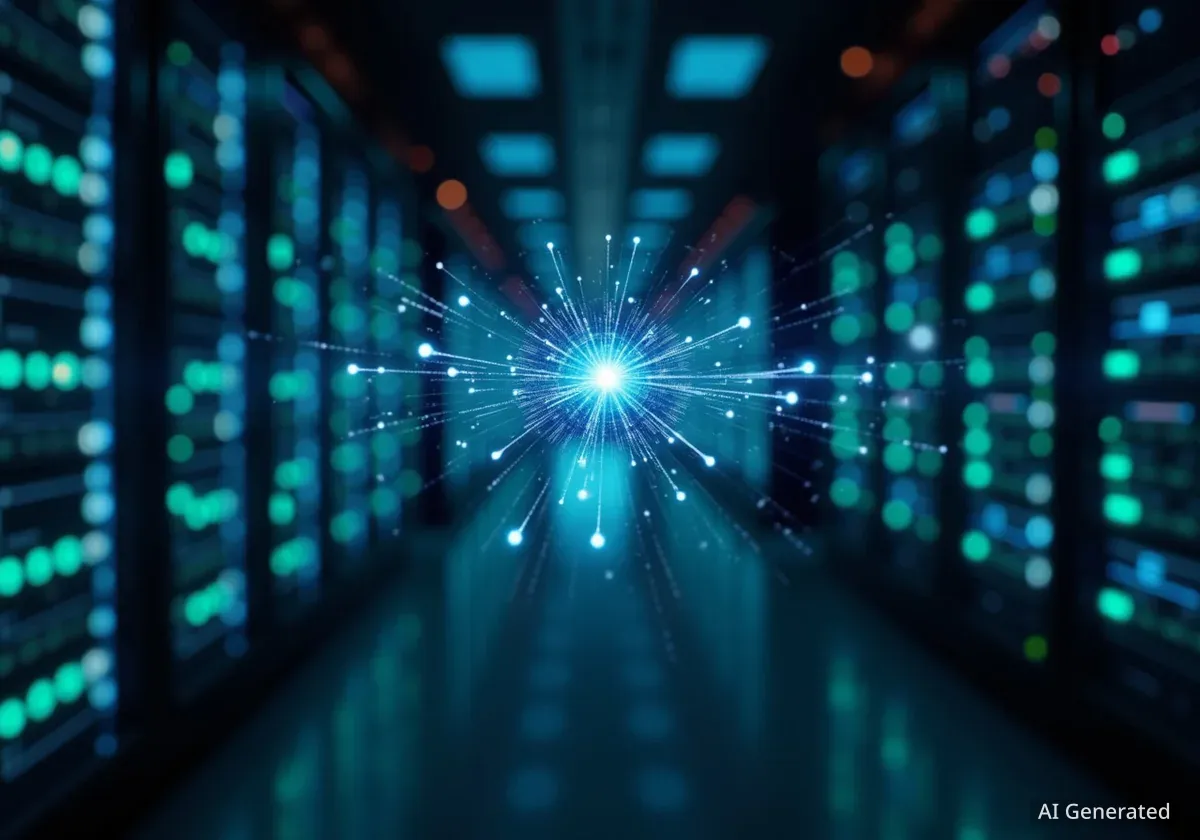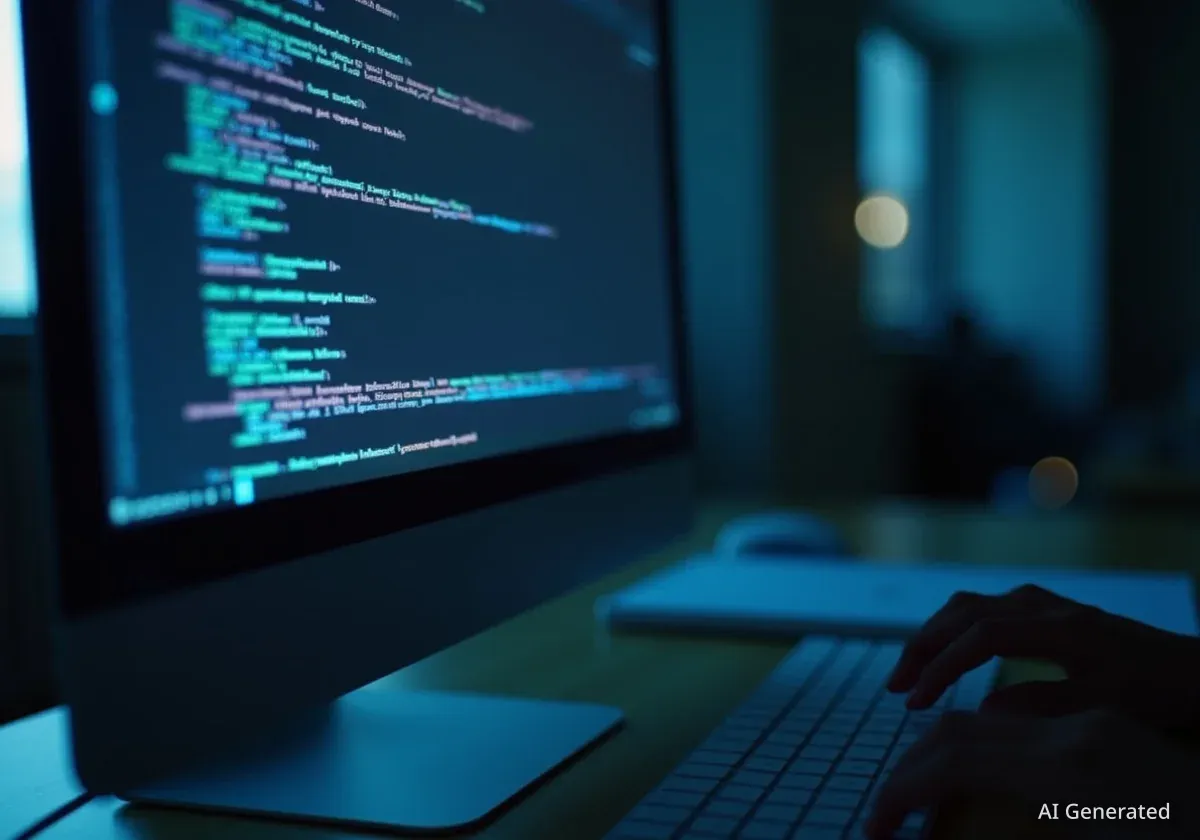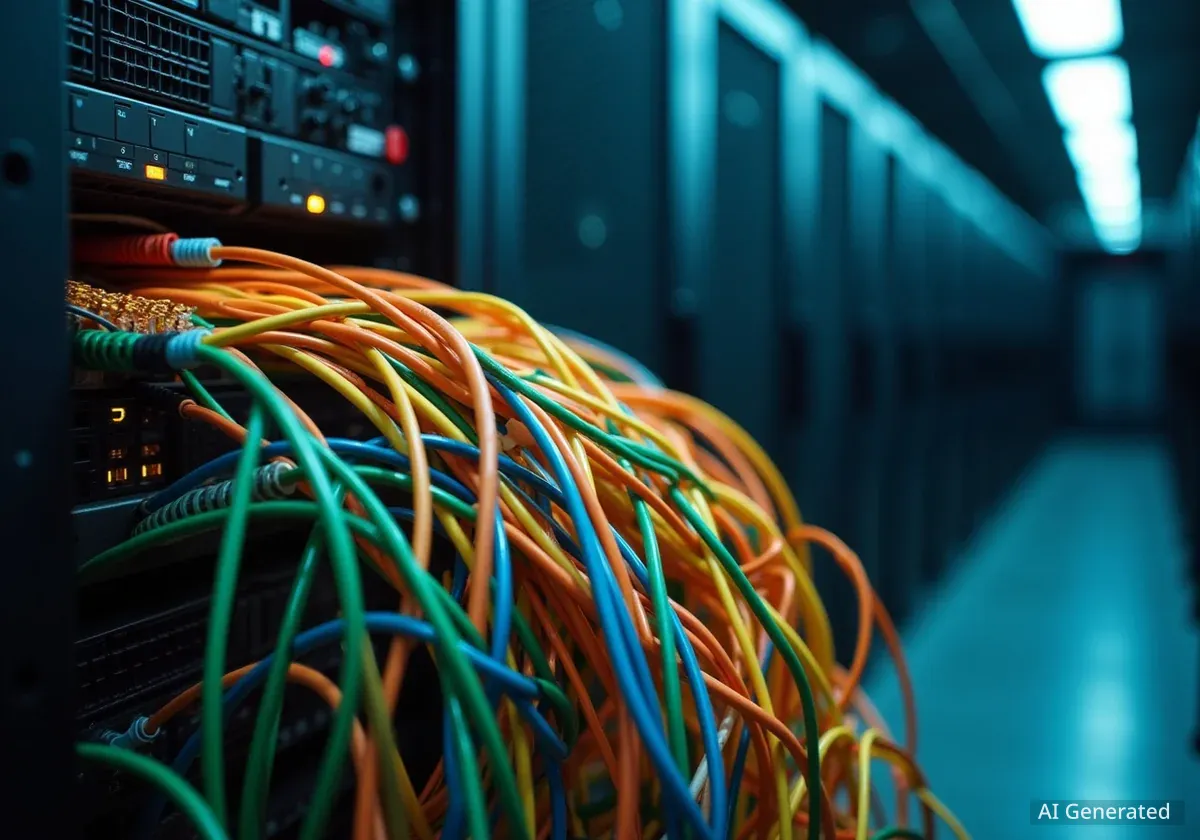The convergence of quantum computing and artificial intelligence is creating a significant new category of cybersecurity threats, according to industry experts. This combination has the potential to render current encryption standards obsolete, exposing sensitive data across critical sectors and dramatically increasing the financial impact of cyberattacks.
Security leaders are now preparing for a future where quantum computers can break today's cryptographic protections, while AI simultaneously automates and enhances the sophistication of cyberattacks on a daily basis.
Key Takeaways
- Quantum computing threatens to break the encryption algorithms that currently protect sensitive digital information.
- Artificial intelligence is being used to create more sophisticated, faster, and highly personalized cyberattacks.
- The "harvest now, decrypt later" strategy, where attackers steal encrypted data today to decrypt it with future quantum computers, is a present-day risk.
- Industries such as finance, healthcare, and critical infrastructure are particularly vulnerable due to the long-term value of their data.
A New Era of Digital Risk
Advances in quantum computing and artificial intelligence are poised to deliver significant technological breakthroughs. Quantum 2.0 promises ultra-fast computation and highly sensitive sensors, while AI is optimizing complex systems ranging from drug discovery to logistics. However, these same advancements introduce unprecedented security challenges.
Cybersecurity professionals warn that the dual-use nature of these technologies creates a formidable threat. While beneficial innovation is one outcome, the other is a powerful new toolkit for malicious actors. The primary concern is the potential for a quantum computer to break widely used encryption methods like RSA and ECC, which protect everything from financial transactions to government communications.
Understanding the Dual Threat
The danger lies in the parallel evolution of these two technologies. Quantum computing targets the foundation of digital security—encryption. Artificial intelligence, on the other hand, perfects the delivery mechanism of attacks, making them harder to detect and more effective at deceiving human users and security systems.
The Economic and Operational Impact
The financial consequences of data breaches are already substantial. According to a report by IBM, the average cost of a cyber breach has reached $4.44 million per incident globally. In the United States, this figure is significantly higher, averaging $10.22 million.
Experts warn that these costs could escalate dramatically in an era of AI-driven, quantum-supported attacks. A successful breach of currently secure data could lead to catastrophic financial losses, regulatory fines, and a severe loss of customer trust. The integrity of vast amounts of stored data could be compromised simultaneously, rendering it untrustworthy.
Security Leaders on High Alert
Recent industry surveys highlight growing concern among cybersecurity professionals. According to 2025 projections, nearly two-thirds of organizations view quantum computing as one of the most significant cybersecurity threats looming in the next three to five years. Furthermore, an overwhelming 93% of security leaders are actively preparing for daily cyberattacks powered by artificial intelligence.
The 'Harvest Now, Decrypt Later' Strategy
One of the most immediate threats stemming from quantum computing is not a future event but a current one. Malicious actors are already engaging in a strategy known as "harvest now, decrypt later." This involves stealing large volumes of encrypted data today with the intention of decrypting it once a sufficiently powerful quantum computer becomes available.
This tactic poses a serious risk to organizations that handle data with long-term value, such as government agencies, healthcare providers, and financial institutions. Information like health records, intellectual property, and state secrets remains sensitive for decades, making it a prime target for this type of data harvesting.
"The threat is not decades away. Attackers are grabbing encrypted data today, waiting for quantum technology to unlock it. Without the right defenses, key sectors could face chaos," a leading security strategist noted.
Preparing for the Post-Quantum Era
In response to these emerging threats, the cybersecurity community is focused on developing "quantum-safe" or "post-quantum" cryptography (PQC). These are new encryption algorithms designed to resist attacks from both classical and quantum computers. Innovators in the field, including former government advisors and quantum technology experts, stress the urgency of transitioning to these new standards.
Key Steps for Organizations
Experts recommend a multi-layered approach to building resilience against combined AI and quantum threats. This includes several proactive measures:
- Inventorying Cryptographic Systems: Organizations must first identify where and how they use encryption to protect their data.
- Developing a Transition Roadmap: Creating a plan to migrate from current cryptographic standards to PQC is essential.
- Adopting Crypto-Agility: Systems should be designed to allow for easy updates to new cryptographic standards as they become available.
- Enhancing AI-Powered Defenses: Fighting AI-driven attacks requires using AI in defensive tools to detect anomalies and sophisticated threats like GenAI-powered phishing attempts.
Expert Insight on Preparedness
Dr. Michele Mosca, a co-founder of evolutionQ and a pioneer in quantum-safe cryptography, has long advocated for early preparation. The consensus among experts is that waiting for a large-scale quantum computer to be built is not a viable strategy. The process of upgrading national and corporate infrastructure is complex and time-consuming, requiring immediate attention.
The Global Cybersecurity Outlook has also warned that a significant number of organizations fear attacks boosted by generative AI. This underscores the need for a comprehensive security strategy that addresses both the immediate threat of AI-powered attacks and the impending risk of quantum decryption. Building cyber resilience is no longer an option but a critical necessity for survival in the next technological era.





